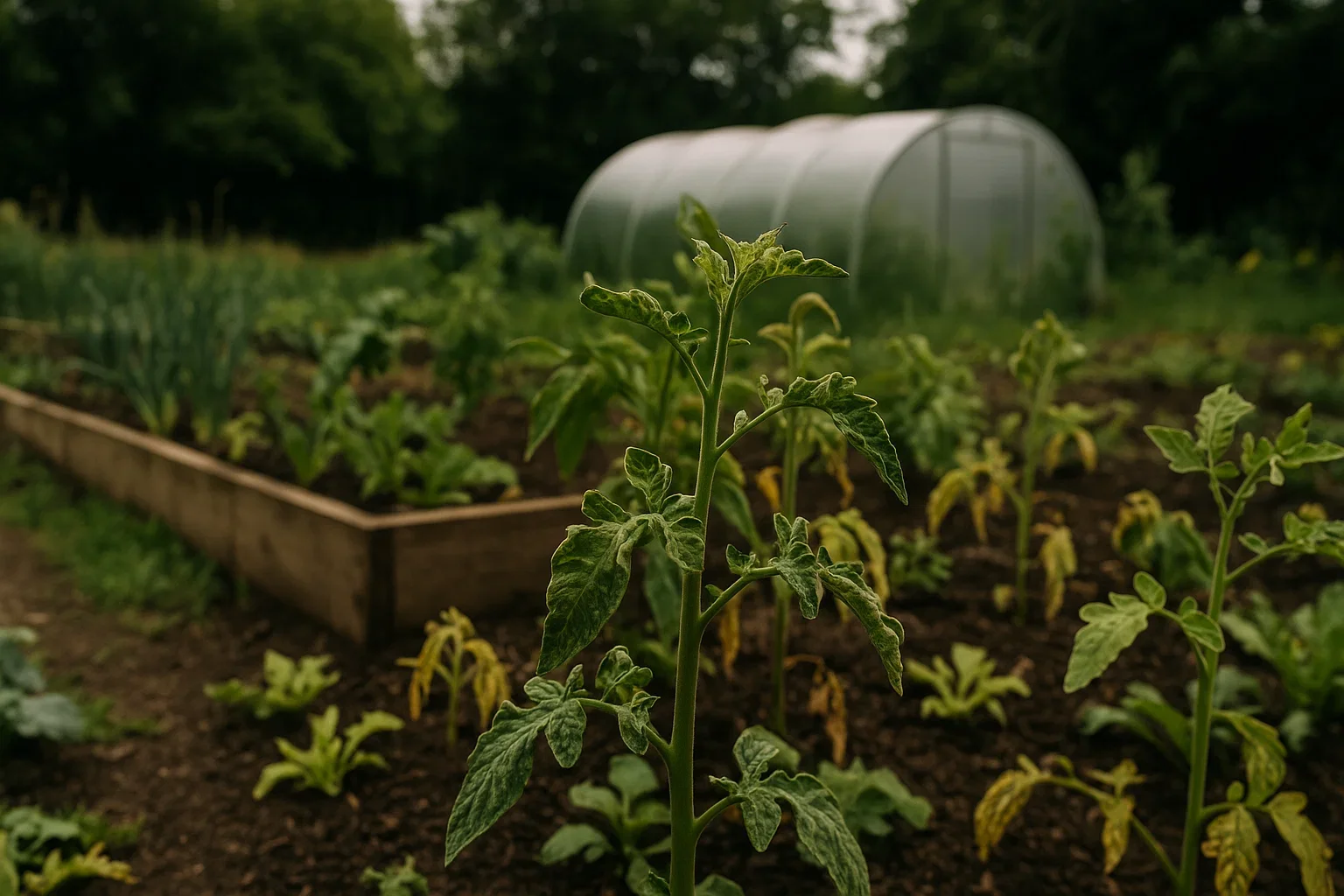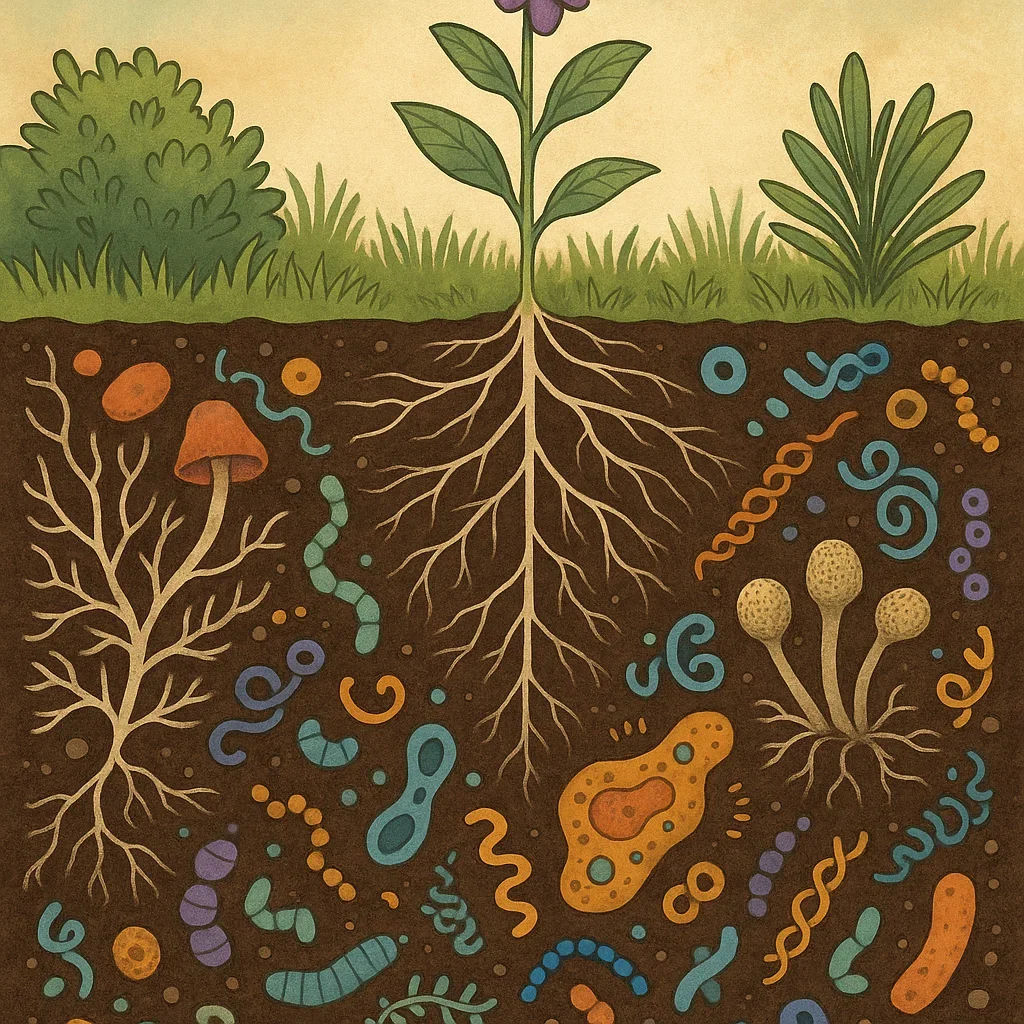🪱 When Compost Goes Wrong: Lessons in Regenerative Soil Management for UK Gardeners
The Hidden Cost of “Bad” Compost
Across the UK, gardeners and horticulturists are discovering that not all composts are safe or beneficial. Some green waste composts and manures contain persistent herbicides such as clopyralid and aminopyralid. Even at trace levels, these chemicals can deform tomatoes, beans, and potatoes — undoing months of care.
Healthy compost should build life, not destroy it. That’s why Agriton UK promotes a regenerative approach: ensuring every input feeds soil biology rather than suppressing it.
Beyond Aerobic Composting: The Role of Facultative Microbes
Traditional composting emphasises air flow and turning to maintain aerobic conditions. But healthy soil isn’t purely aerobic — it’s dynamic. In the real world, oxygen fluctuates within soil aggregates and root zones, allowing facultative anaerobic microbes to thrive.
These are the same microbes found in Bokashi systems and EM Technology:
Lactobacillus (lactic acid bacteria)
Rhodopseudomonas (photosynthetic bacteria)
Yeasts and beneficial actinomycetes
They work both with and without oxygen, breaking down organic matter into stable nutrients and producing metabolites that improve plant health and resilience.
🔗 Learn more about EM-1 Microbial Inoculant →
Soil REDOX, Minerals, and Microbial Synergy
Regenerative horticulture brings together biology, chemistry, and physics — the full ecosystem view. Research from Dr James White, Dr Olivier Husson, and John Kempf shows that:
Balanced minerals help plants build complete proteins, reducing pests.
Redox potential (Eh) determines how nutrients and microbes behave.
Endophytic microbes help plants regulate sugars and nitrates from within.
This balance creates the conditions for nutrient-dense growth and natural pest resistance — without chemical intervention.
How to Build Living Soil in the Garden
Here’s how gardeners and horticulturists can adopt a regenerative soil approach:
Use clean, verified compost — or make your own Bokashi ferment using EM-1/EM-A.
Avoid over-digging – protect fungal networks and soil structure.
Feed soil microbes with natural mulches, Actiferm, and organic residues.
Encourage fungi with leaf mould, wood chips, or mycorrhizal inoculants.
Balance minerals using natural amendments such as Vulkamin volcanic minerals and Aegir seashell calcium.
Observe soil health – good soil smells earthy, not sour or stagnant.
Healthy soil doesn’t just grow healthy plants — it improves every year.
The Agriton UK Approach
At Agriton UK, we’re helping gardeners, growers, and landscapers create closed-loop, regenerative systems.
Our solutions work with nature’s biology, using microbial diversity to enhance fertility and structure.
Our key soil products include:
EM-1 Microbial Inoculant – a blend of effective microorganisms for composting and soil health.
Bokashi Bran – a living ferment to recycle food waste into nutrient-rich soil conditioner.
Actiferm – a liquid microbial activator for soil, compost, and plants.
Vulkamin Minerals – volcanic rock dust rich in trace minerals.
Aegir Seashell Calcium – natural calcium carbonate to balance soil pH.
Each product is designed to support soil’s biological life — from microbes to minerals — helping UK gardeners grow better, naturally.
Grow Better, Naturally 🌿
When we build soil that’s alive, we create systems that feed themselves. The goal isn’t just to avoid “bad” compost — it’s to create soil that regenerates with every season.
Agriton UK – Science-led, nature-driven solutions for soil, composting, and sustainable horticulture.



